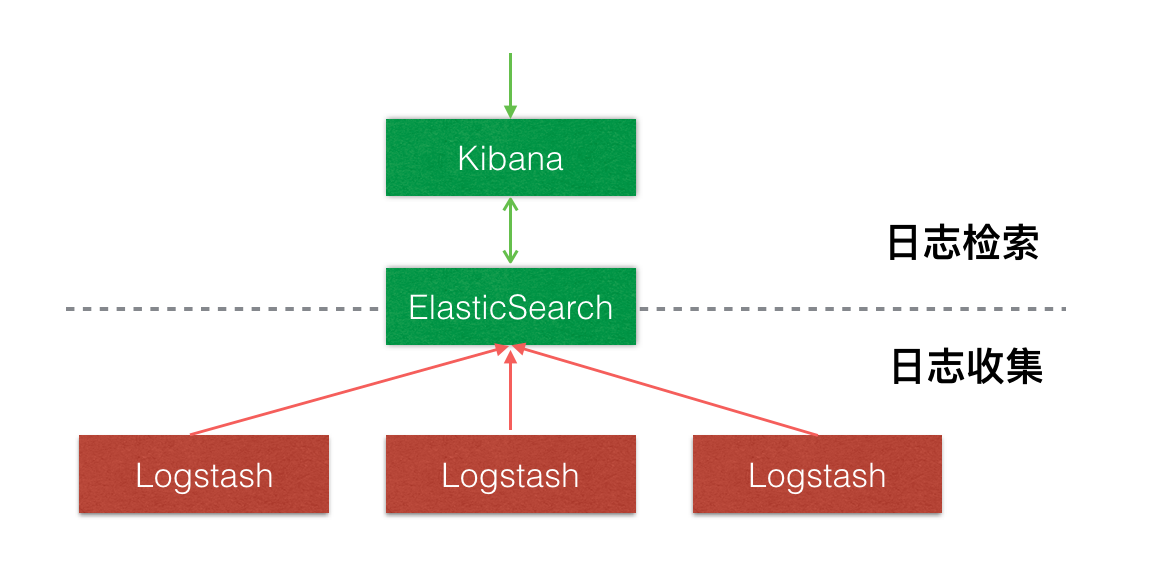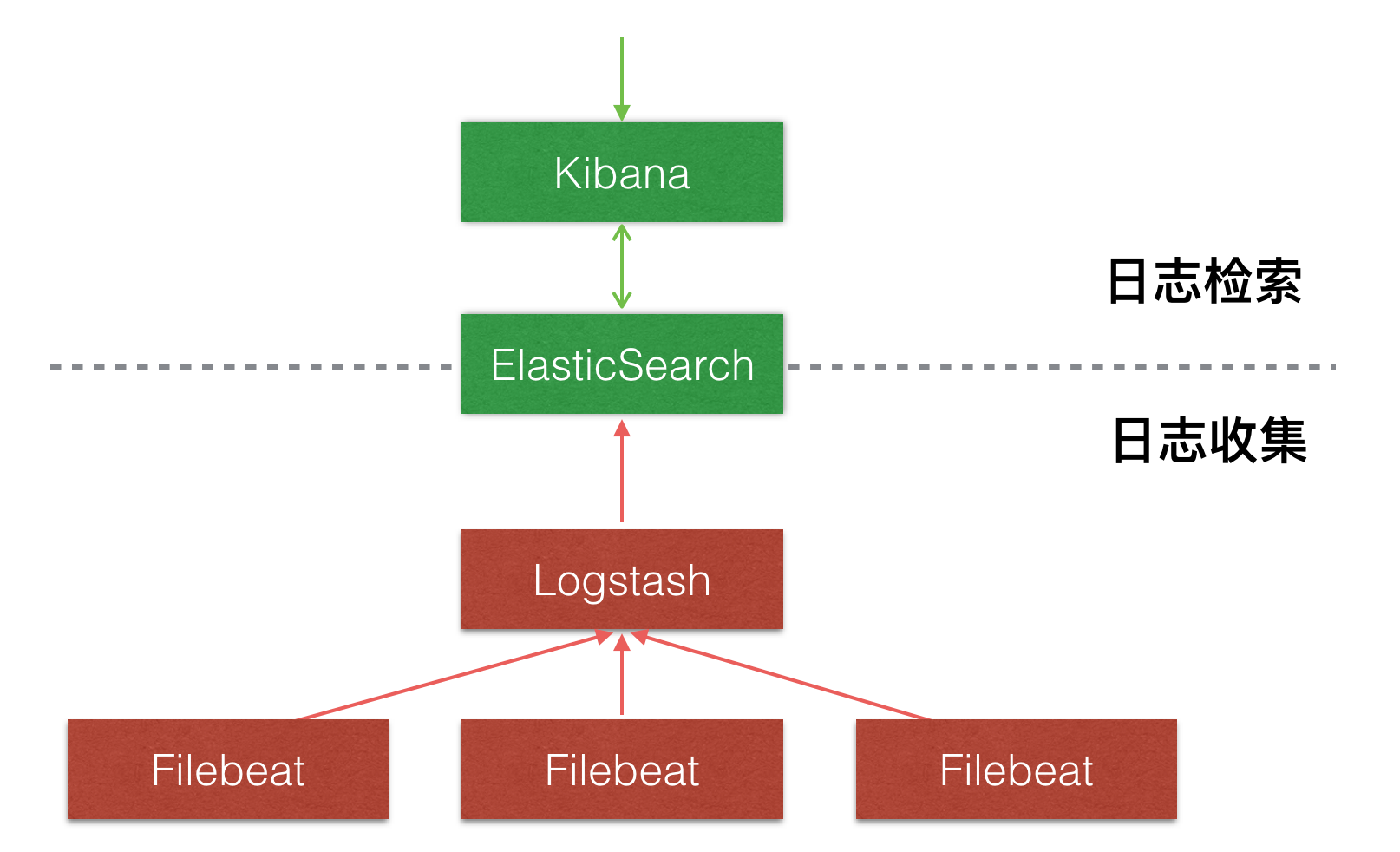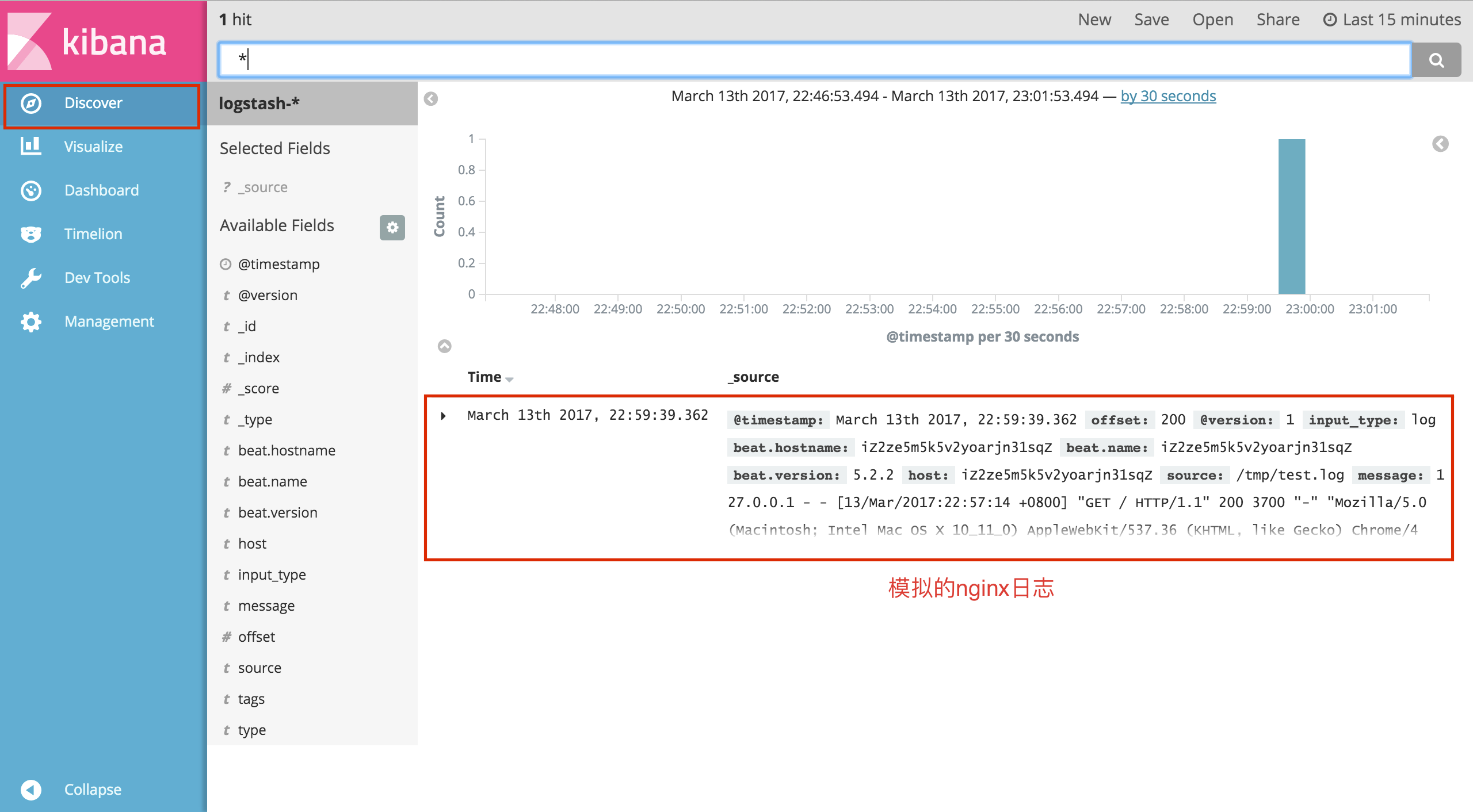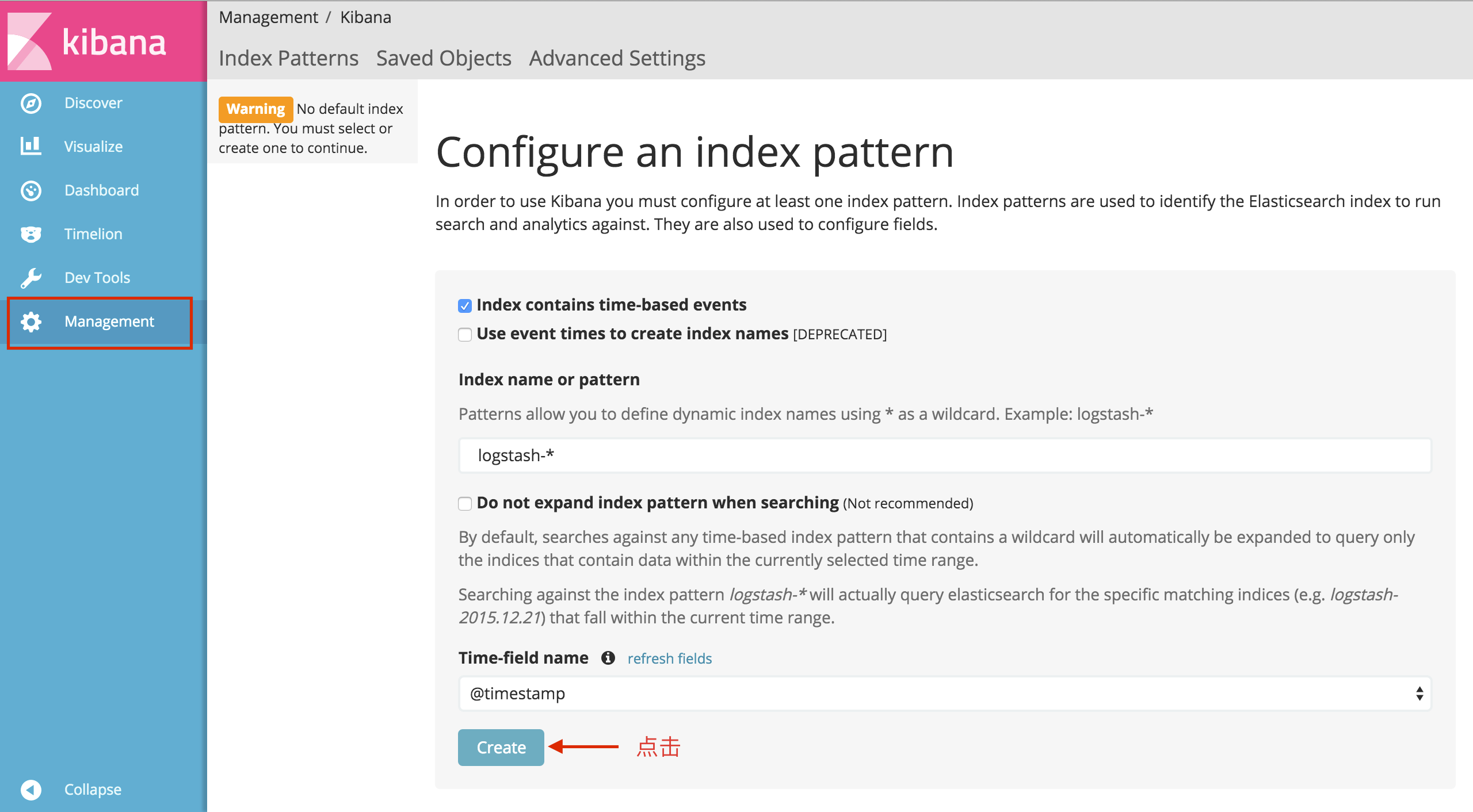 System Tutorial
System Tutorial
 LINUX
LINUX
 Using Docker to build an ELK+Filebeat log centralized management platform
Using Docker to build an ELK+Filebeat log centralized management platform
Using Docker to build an ELK+Filebeat log centralized management platform
1. System: centos 7
2.docker 1.12.1
introduceElasticSearch
Elasticsearch is a real-time distributed search and analysis engine that can be used for full-text search, structured search and analysis. It is a search engine based on the full-text search engine Apache Lucene and written in Java language.
Logstash
Logstash is a data collection engine with real-time channel capabilities. It is mainly used to collect and parse logs and store them in ElasticSearch.
Kibana
Kibana is a web platform based on the Apache open source protocol and written in JavaScript language to provide analysis and visualization for Elasticsearch. It can search in Elasticsearch's index, interact with data, and generate tables and graphs in various dimensions.
Filebeat
Introducing Filebeat as a log collector is mainly to solve the problem of high overhead of Logstash. Compared with Logstash, Filebeat occupies almost negligible system CPU and memory.
ArchitectureDo not introduce Filebeat

Introducing Filebeat

Start ElasticSearch
docker run -d -p 9200:9200 --name elasticsearch elasticsearch
Start Logstash
# 1. 新建配置文件logstash.conf
input {
beats {
port => 5044
}
}
output {
stdout {
codec => rubydebug
}
elasticsearch {
#填写实际情况elasticsearch的访问IP,因为是跨容器间的访问,使用内网、公网IP,不要填写127.0.0.1|localhost
hosts => ["{$ELASTIC_IP}:9200"]
}
}
# 2.启动容器,暴露并映射端口,挂载配置文件
docker run -d --expose 5044 -p 5044:5044 --name logstash -v "$PWD":/config-dir logstash -f /config-dir/logstash.conf
Start Filebeat
Download address: https://www.elastic.co/downloads/beats/filebeat
# 1.下载Filebeat压缩包
wget https://artifacts.elastic.co/downloads/beats/filebeat/filebeat-5.2.2-linux-x86_64.tar.gz
# 2.解压文件
tar -xvf filebeat-5.2.2-linux-x86_64.tar.gz
# 3.新建配置文件filebeat.yml
filebeat:
prospectors:
- paths:
- /tmp/test.log #日志文件地址
input_type: log #从文件中读取
tail_files: true #以文件末尾开始读取数据
output:
logstash:
hosts: ["{$LOGSTASH_IP}:5044"] #填写logstash的访问IP
# 4.运行filebeat
./filebeat-5.2.2-linux-x86_64/filebeat -e -c filebeat.yml
Start Kibana
docker run -d --name kibana -e ELASTICSEARCH_URL=http://{$ELASTIC_IP}:9200 -p 5601:5601 kibanaSimulation log data
# 1.创建日志文件 touch /tmp/test.log # 2.向日志文件中写入一条nginx访问日志 echo '127.0.0.1 - - [13/Mar/2017:22:57:14 +0800] "GET / HTTP/1.1" 200 3700 "-" "Mozilla/5.0 (Macintosh; Intel Mac OS X 10_11_0) AppleWebKit/537.36 (KHTML, like Gecko) Chrome/46.0.2490.86 Safari/537.36" "-"' >> /tmp/test.log
Visit http://{$KIBANA_IP}:5601


This article mainly describes how to build ELK step by step and the role Filebeat plays in it.
Here is just a demonstration for you. When deploying in a production environment, you need to use data volumes for data persistence. Container memory issues also need to be considered. Elasticsearch and logstash are relatively memory intensive. If they are not used Limitations may bring down your entire server.
Of course, security factors cannot be ignored, such as transmission security, minimized exposure of port permissions, firewall settings, etc.
Follow-uplogstash parses log formats, such as JAVA, nginx, nodejs and other logs;
Common search syntax for elasticsearch;
Create visual charts through kibana;
The above is the detailed content of Using Docker to build an ELK+Filebeat log centralized management platform. For more information, please follow other related articles on the PHP Chinese website!

Hot AI Tools

Undresser.AI Undress
AI-powered app for creating realistic nude photos

AI Clothes Remover
Online AI tool for removing clothes from photos.

Undress AI Tool
Undress images for free

Clothoff.io
AI clothes remover

Video Face Swap
Swap faces in any video effortlessly with our completely free AI face swap tool!

Hot Article

Hot Tools

Notepad++7.3.1
Easy-to-use and free code editor

SublimeText3 Chinese version
Chinese version, very easy to use

Zend Studio 13.0.1
Powerful PHP integrated development environment

Dreamweaver CS6
Visual web development tools

SublimeText3 Mac version
God-level code editing software (SublimeText3)

Hot Topics
 1662
1662
 14
14
 1419
1419
 52
52
 1313
1313
 25
25
 1262
1262
 29
29
 1235
1235
 24
24
 Linux Architecture: Unveiling the 5 Basic Components
Apr 20, 2025 am 12:04 AM
Linux Architecture: Unveiling the 5 Basic Components
Apr 20, 2025 am 12:04 AM
The five basic components of the Linux system are: 1. Kernel, 2. System library, 3. System utilities, 4. Graphical user interface, 5. Applications. The kernel manages hardware resources, the system library provides precompiled functions, system utilities are used for system management, the GUI provides visual interaction, and applications use these components to implement functions.
 How to check the warehouse address of git
Apr 17, 2025 pm 01:54 PM
How to check the warehouse address of git
Apr 17, 2025 pm 01:54 PM
To view the Git repository address, perform the following steps: 1. Open the command line and navigate to the repository directory; 2. Run the "git remote -v" command; 3. View the repository name in the output and its corresponding address.
 What is the main purpose of Linux?
Apr 16, 2025 am 12:19 AM
What is the main purpose of Linux?
Apr 16, 2025 am 12:19 AM
The main uses of Linux include: 1. Server operating system, 2. Embedded system, 3. Desktop operating system, 4. Development and testing environment. Linux excels in these areas, providing stability, security and efficient development tools.
 How to run java code in notepad
Apr 16, 2025 pm 07:39 PM
How to run java code in notepad
Apr 16, 2025 pm 07:39 PM
Although Notepad cannot run Java code directly, it can be achieved by using other tools: using the command line compiler (javac) to generate a bytecode file (filename.class). Use the Java interpreter (java) to interpret bytecode, execute the code, and output the result.
 How to run sublime after writing the code
Apr 16, 2025 am 08:51 AM
How to run sublime after writing the code
Apr 16, 2025 am 08:51 AM
There are six ways to run code in Sublime: through hotkeys, menus, build systems, command lines, set default build systems, and custom build commands, and run individual files/projects by right-clicking on projects/files. The build system availability depends on the installation of Sublime Text.
 laravel installation code
Apr 18, 2025 pm 12:30 PM
laravel installation code
Apr 18, 2025 pm 12:30 PM
To install Laravel, follow these steps in sequence: Install Composer (for macOS/Linux and Windows) Install Laravel Installer Create a new project Start Service Access Application (URL: http://127.0.0.1:8000) Set up the database connection (if required)
 git software installation
Apr 17, 2025 am 11:57 AM
git software installation
Apr 17, 2025 am 11:57 AM
Installing Git software includes the following steps: Download the installation package and run the installation package to verify the installation configuration Git installation Git Bash (Windows only)
 How to use sublime shortcut keys
Apr 16, 2025 am 08:57 AM
How to use sublime shortcut keys
Apr 16, 2025 am 08:57 AM
Sublime Text provides shortcuts to improve development efficiency, including commonly used (save, copy, cut, etc.), editing (indentation, formatting, etc.), navigation (project panel, file browsing, etc.), and finding and replacing shortcuts. Proficiency in using these shortcut keys can significantly improve Sublime's efficiency.



